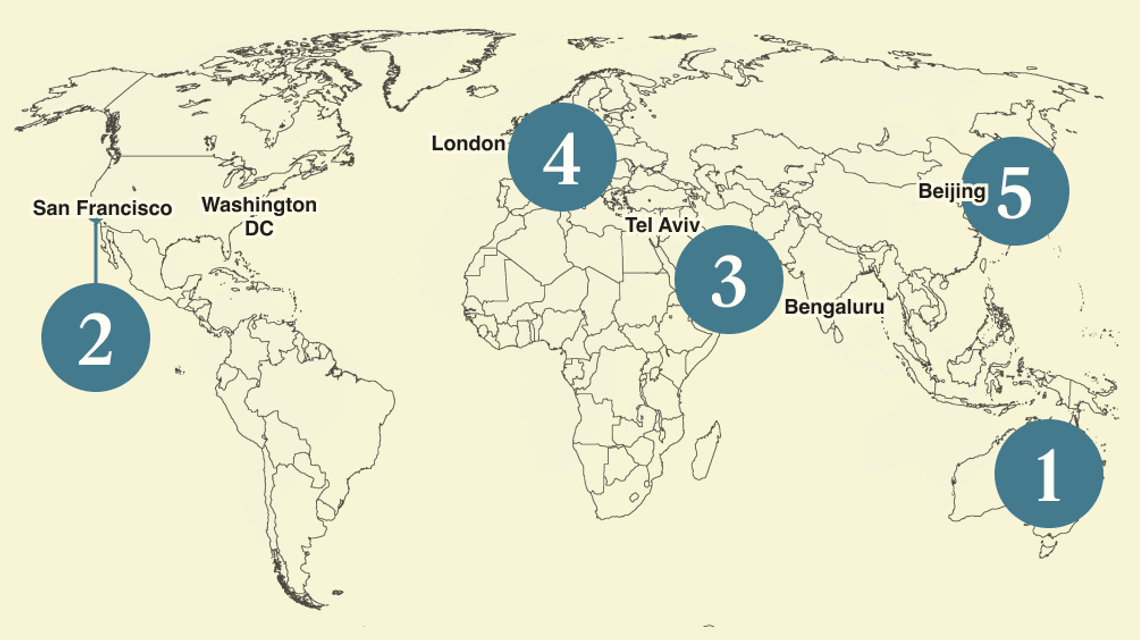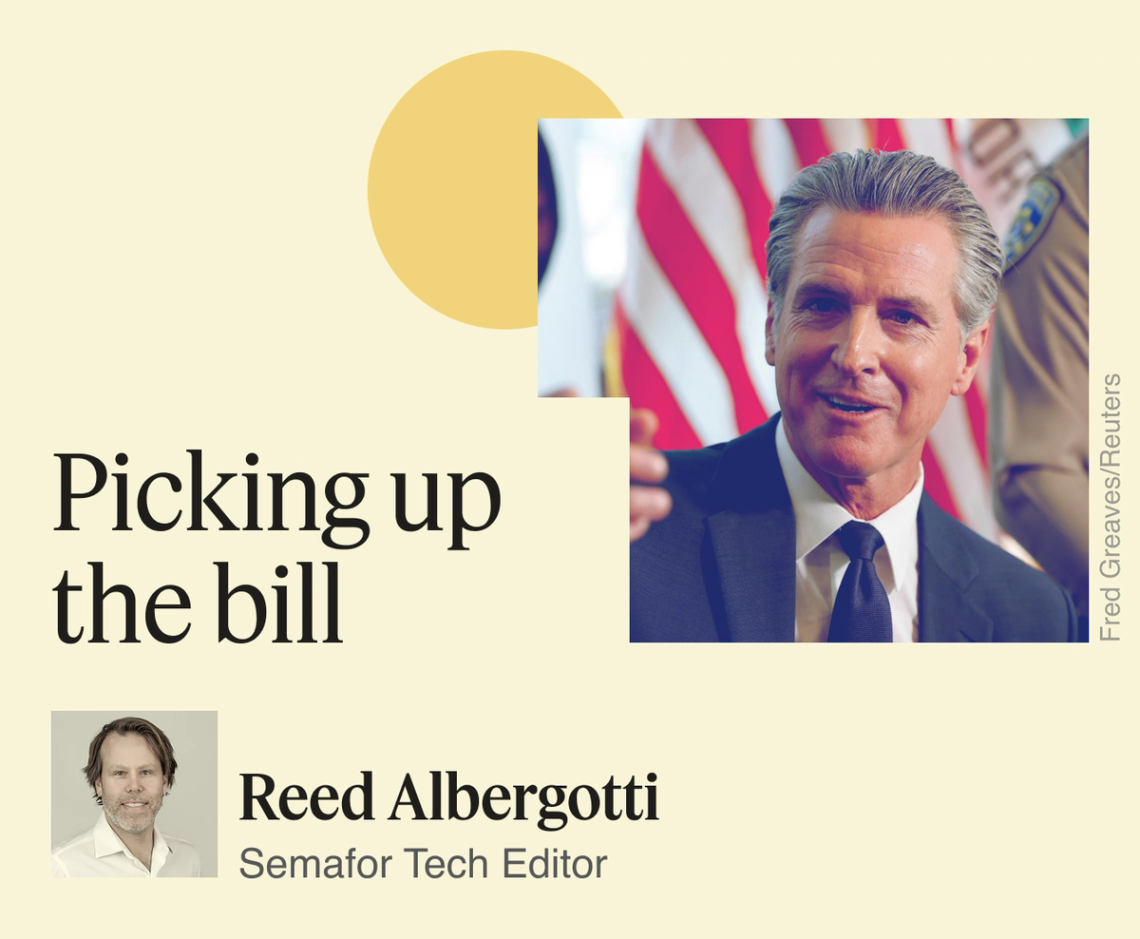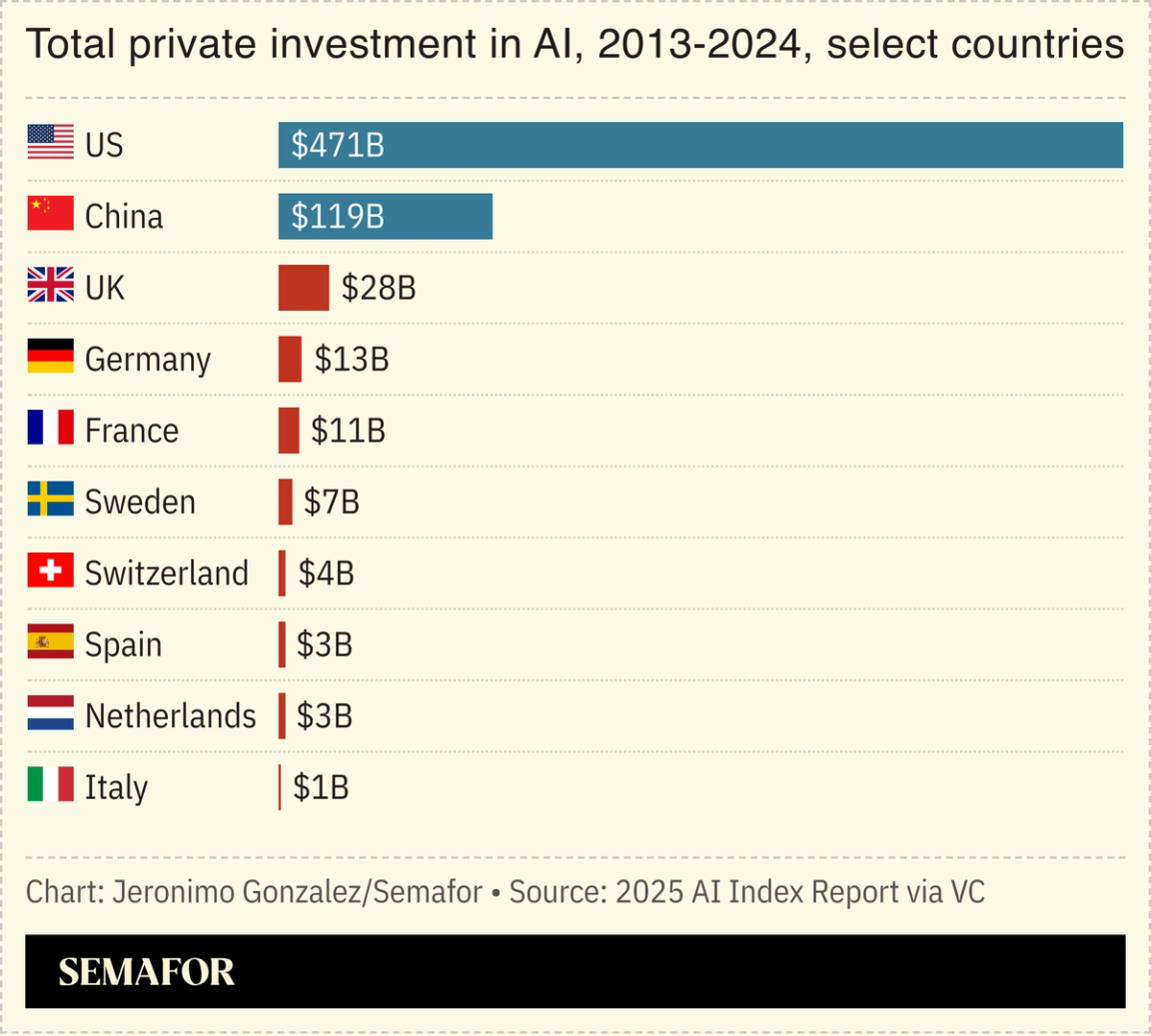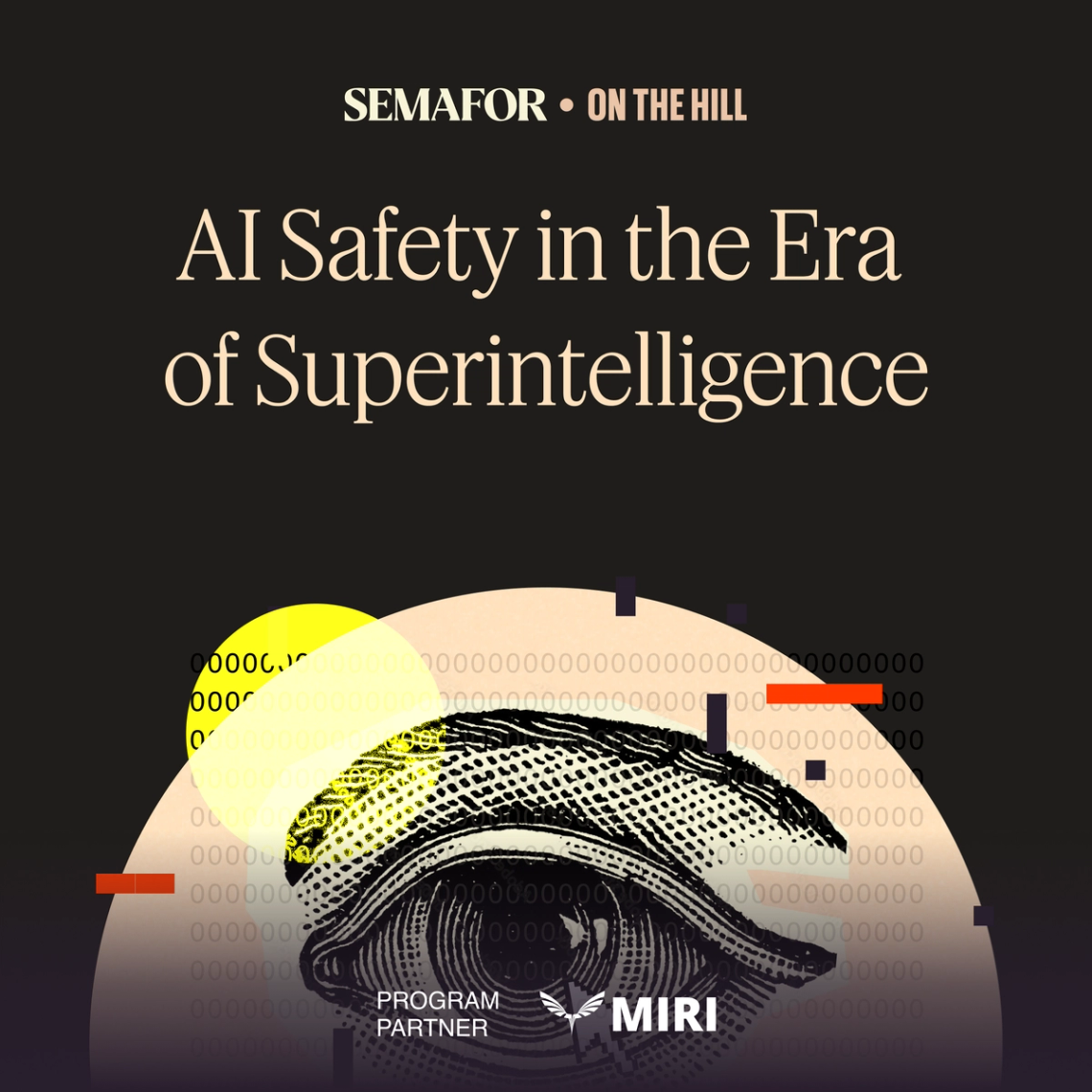| | In this edition, California’s proposed AI bill meant to create safety has its risks, and whether the͏ ͏ ͏ ͏ ͏ ͏ |
| |  | Technology |  |
| |
|
 - PsiQuantum leap
- If Babel had AirPods…
- The UAE’s DeepSeek?
- Mistral’s fresh cash
- Growing Unitree
 Reed’s view on California’s latest AI safety bill, and the case to lose a Friend. |
|
 Which is worse: the unintended consequences of technology — or the unintended consequences of regulation? That’s the question raised in California’s new AI safety legislation, which is coming up for a vote this week. The bill, which mandates reporting, is a more modest step than the more punitive safety measure Gov. Gavin Newsom vetoed last year. But AI companies oppose it anyway as the first step down an onerous slippery slope. The White House, I’m told, sees it as another reason to push through a federal block on state AI regulation. And with the housing crisis in the news, the companies are drawing a particular analogy. OpenAI warned lawmakers they could be creating the “CEQA of AI innovation.” Signed into law by then-Gov. Ronald Reagan in 1970, CEQA seemed like a simple requirement to ensure development doesn’t harm the environment. Instead, it hobbled the state’s ability to do much of anything without long, drawn-out legal battles often paid for by taxpayers. Housing is one of the reasons anyone in tech will tell you that the industry is thriving in California largely in spite of regulations, not because of them. Now the state is trying to dig out of that hole. There’s a game of chicken happening. How far can lawmakers go before the state’s biggest source of tax revenue begins to flee? Legislators should realize that a simple law meant to avert potential catastrophic risks seems like an existential risk to those who oppose it. |
|
 A silicon photonic wafer with PsiQuantum chips. Courtesy of PsiQuantum. A silicon photonic wafer with PsiQuantum chips. Courtesy of PsiQuantum.Quantum computing startup PsiQuantum raised $1 billion to help break ground on facilities in Chicago and Brisbane, Australia, that will host its first photonics-based, fault-tolerant quantum computers, it announced Wednesday. The new funds, which value the company at $7 billion, will also go towards improving its GlobalFoundries-manufactured quantum photonic chips, which use light to generate, manipulate, and measure qubits, the units that fuel more powerful computations than their binary counterparts. Of the methods being tested to build and scale quantum computers, PsiQuantum is the only major player betting on photonics, due to the existing infrastructure built around the technology. BlackRock, Singapore’s Temasek, and Baillie Gifford led the round, with participation from Nvidia’s venture capital arm and Qatar Investment Authority. It’s among the largest sums of venture capital injected into a quantum firm since PsiQuantum’s $620 million raise by Australian government groups last year. |
|
It’s all about the AirPods |
 Manuel Orbegozo/Reuters Manuel Orbegozo/ReutersApple’s biggest announcement Tuesday wasn’t the iPhone. It was a new translation feature included with its latest AirPods Pro earbuds. According to the demo, the AirPods will translate the words of a person in real time. If two people have them in, they can translate each other simultaneously. It’s an obvious idea that Apple and other companies have been working on for a while, with some that have already gone to market. It’s also another potential “lock-in” for Apple. The sheer size of its install base and the popularity of AirPods means it could instantly become the most ubiquitous translation tool in the world. What’s needed is an open standard, so that two people don’t have to be using Apple devices, or products from any one manufacturer. It’s not too late. The first generation of this technology isn’t going to be perfect. It will be glitchy and take time to catch on. If there isn’t an open standard that forces Apple to allow interoperability, it will diminish the power of the concept. What’s the point of unlocking universal communication if our devices can’t even talk to one another? |
|
 The MBZUAI campus. Abu Dhabi Media Office. The MBZUAI campus. Abu Dhabi Media Office.There’s a new model on the block. An AI research university in Abu Dhabi has launched a new low-cost reasoning model that’s a fraction of the size of available options while performing just as well, according to the developers. Emirati investor G42 partnered with the university to create the model — called K2 Think — in the latest move to position the UAE as a global AI leader. Neighboring Saudi Arabia has also sought to cement its place in the AI race through sovereign wealth fund-owned HUMAIN, which is building data centers and launched an Islamic-focused chatbot. AI has emerged as a potential cash cow for the Gulf as the region looks to diversify its economy away from oil. |
|
Mistral gets an injection |
 ASML agreed to invest €1.3 billion ($1.5 billion) in Mistral, a deal that would make it the largest shareholder in the French AI company. Dutch giant ASML is the world’s largest manufacturer of advanced chipmaking equipment, and the move ties two of Europe’s biggest AI-related companies closer together. “It’s important for European companies not to have too much dependency on US technology,” Mistral CEO Arthur Mensch said in the Financial Times. The open-weight approach, once dominated by Mistral and Meta, has gained global traction in recent years, boosted by adoption from Chinese firms like DeepSeek and Alibaba. That has validated Mistral’s strategy but also crowded the market, pitting the European startup against US and Chinese heavyweights. Meanwhile, the deal’s size still pales in comparison to the AI investments filtering through the US. Mistral is Europe’s most valuable AI firm with a market capitalization of $13.8 billion — less than 10% of Anthropic’s value and smaller even than Perplexity. |
|
Unitree sets sights on $7B IPO valuation |
 Florence Lo/Reuters Florence Lo/ReutersChinese robotics firm Unitree is eyeing a valuation of up to 50 billion yuan ($7 billion) for its upcoming initial public offering, Reuters reported, in what would be one of the largest tech listings for the country in recent years. The company, which disputed the figure, is among the top humanoid robotic firms in China, vying with the US for global supremacy in the sector. Unitree recently raised fresh capital from national giants including Alibaba and Tencent, which valued the company at an estimated $1.7 billion, according to PitchBook. The planned IPO would test investor interest in the nascent industry that China is poised to dominate. |
|
 AI is set to transform the world, but who will control its direction? While the US debates AI regulation, the EU and China are already implementing frameworks that could shape the global AI landscape for decades. With tech giants racing toward artificial superintelligence, a question dominates: What safeguards will keep humanity in control? Join Semafor Monday, September 29 in Washington, DC as Semafor editors sit down with Rep. Jay Obernotle (R-Calif.) to discuss the most critical policy challenge of our time. September 29, 2025 | Washington DC | Request Invitation |
|
 An ad for the AI wearable Friend. Friend Media Channel/YouTube. An ad for the AI wearable Friend. Friend Media Channel/YouTube.Wearable AI devices have emerged as a potential “next big thing” in the search for how humans will interact with technology in the future. But there has yet to be a clear leader in that space, and existing pieces of hardware have struggled to gain mass popularity. Over a series of weeks, Wired reporters tested the Friend, an AI-powered pendant necklace that listens to a user’s conversations and provides running feedback — intended to combat loneliness and spur personal growth. But both reporters had a poor experience, saying the chatbot’s feedback was unhelpful, and at times “opinionated, judgy, and downright condescending.” The always-listening gadget also sparked backlash from bystanders who objected to their conversations being captured and stored by an AI company. It’s the latest flop after the Humane pin shut down and a series of smart glasses failed to gain traction, with criticisms of both devices also revolving around privacy. The next breakout technology could be a response to those concerns, or simply people growing more comfortable trading privacy for convenience. |
|
|